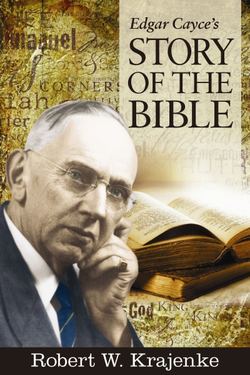Читать книгу Edgar Cayce's Story of the Bible - Robert W. Krajenke - Страница 52
На сайте Литреса книга снята с продажи.
Abimilech
ОглавлениеOn October 18, 1934, a thirty-four-year-old physicist of Christian background was told he had been Abimilech, whose story is recorded in Genesis 20:
The entity then was in the name Abimilech, or the ruler of those people in the lands that lay between the Egyptian and Syrophoenician lands. The entity then gained, even through those experiences and associations. Yet from those very activities there were brought those desires on the part of the entity, Abimilech, to bring to the knowledge of those who were as servants—or those whom the entity served in the capacity of the king of that land—that “he that would be the greatest among all would be the servant of all.” While the entity had much in its experience and through that sojourn, that in the material and the moral life in the present would be questioned, yet the purposes, the aims, the desires, the activities were rather as the growth throughout that sojourn.
And the abilities of the entity in the present to apply same are in the innate influences that impel and make for a growth in the soul, or in the entity—which is the combination of all its experiences with its soul also—that may make for not only the material but the mental and spiritual growth that comes to a greater and better knowledge, understanding, of those things in the earth.
699-1
As the above reading affirms, Abimilech was a spiritually-minded man. (Genesis 20) Unlike Pharaoh, who was awakened only through a series of plagues (Genesis 12), Abimilech was warned through a vision of the deception which Abram had practiced on him. Abram’s presenting Sarah as his sister previously in Egypt had not only protected them, but had established him, via Pharaoh’s gifts, as a wealthy man.
Perhaps he and Sarah agreed to practice this deception everywhere they stopped, or when they felt it was needed.
. . . as indicated in the law of the Book, the life of the man Abraham was not beautiful, yet that faith which motivated same is beautiful, and the memory and of the children of faith we find beautiful.
4035-1
Edgar Cayce’s Bible class lesson was a hard look at Abraham and his rationalizations to Abimilech.
“Abraham’s excuse was he did not feel God was in that place or among the people. He had become so used to thinking of himself as being a chosen one, he forgot to look for the good in others. He depended, rather, upon his ability for slyness and trickery.
“Abraham’s actions, first with Pharaoh and then with Abimilech, are hard for us to understand. We can only say that he was very human. Even today, no matter how old we are or what our circumstances may be, we are constantly attempting to justify ourselves. Usually we are looking for the easiest ways to ‘get by.’
“We might even say Abraham was just practicing another good Jewish trick, and getting a lot of money out of these people. The Philistines were as wealthy as the Egyptians.
“Still, if we think of the experience as something we can apply in our own lives, it would represent our attempts to justify ourselves in material things.
“Abraham felt he had a special interest in God not shared by others. Many feel that way today. They feel they are especially gifted and have a right to the best of everything. This is true. Each individual has a right to be best in life, but only in harmonious co–operation with others, and not at their expense.
“Abimilech reproved Sarah for taking his gifts to Abraham. He felt they were not deserved because they had taken advantage of him.”
